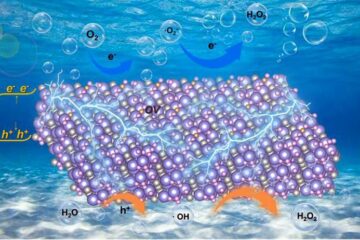Antibody-guided drug works against acute lymphoblastic leukemia

An antibody packaged with a potent chemotherapy drug to selectively destroy acute lymphoblastic leukemia (ALL) cells eradicated or greatly reduced the disease for 61 percent of 46 patients in a phase II study. It will be presented at the 47th annual meeting of the American Society of Clinical Oncology in Chicago June 3-7.
Patients enrolled in the trial led by investigators at The University of Texas MD Anderson Cancer Center had ALL that resisted other therapies or recurred after treatment.
“A response rate of more than 50 percent in this patient population probably makes inotuzumab ozogamicin the most active single-agent therapy ever for ALL,” said Hagop Kantarjian, M.D., professor and chair of MD Anderson's Department of Leukemia and study senior investigator.
ALL is an aggressive form of leukemia in which immature white blood cells, called lymphoblasts, grow rapidly, crowding out normal blood cells.
The drug, also known as CMC-544, links an antibody that targets CD22, a protein found on the surface of more than 90 percent of ALL cells, and the cytotoxic agent calicheamicin. Once the drug connects to CD22, the ALL cell draws it inside and dies.
Response rate for other second options is 20-30 percent
Kantarjian said second-line chemotherapy combinations used for ALL typically have a complete response rate of 20-30 percent. The monoclonal antibody-based drug developed by Pfizer, Inc., also is the first of its type for ALL.
The drug is safe, said Elias Jabbour, M.D., assistant professor in MD Anderson's Department of Leukemia, who will present the study results at ASCO on Monday, June 6. Almost all side-effects were of low grade (1-2) and manageable. Drug-induced fever was the most common side effect, reaching higher grades in nine of 48 patients.
Out of 46 patients evaluable for response, nine had a complete response, 14 had complete response without full recovery of platelets, and 5 had less than 5 percent blasts in their bone marrow without blood count recovery.
Sixteen responders subsequently received a donor blood stem cell transplant, Jabbour noted.
Drug combinations
Combining inotuzumab with other chemotherapy might further improve ALL treatment, Jabbour said. MD Anderson has a phase II clinical trial under way following inotuzumab treatment with another monoclonal antibody drug, rituximab, currently used in some types of non-Hodgkin's lymphoma.
Rituximab targets the CD20 surface protein, which occurs in 50 percent of ALL cells.
In addition to combinations, the authors suggest that a shift from dosing every three weeks to weekly should be explored.
Frontline therapy for ALL is a combination chemotherapy regimen known as HyperCVAD.
The National Cancer Institute estimates that 5,330 people received an ALL diagnosis in 2010 and 1,420 died of the disease.
ALL is the most common type of childhood cancer. Combined chemotherapy regimens have raised long-term survival from 5 percent of pediatric patients in the 1960s to 85 percent today.
The clinical trial was funded by a grant from Pfizer.
Co-investigators with Jabbour and Kantarjian are Susan O'Brien, M.D., Deborah Thomas, M.D., Farhad Ravandi, M.D., Sergernne York, Monica Kwari, Stefan Faderl, M.D., Tapan Kadia, M.D., Guillermo Garcia-Manero, M.D., and Jorge Cortes, M.D., of MD Anderson's Department of Leukemia; Christopher Wilson and Robert Tarnai, of PPD, Inc.; and Anjali S. Advani, M.D., of the Cleveland Clinic Taussig Cancer Institute.
Kantarjian and co-author Cortes receive research funding from Pfizer, and Cortes has been a consultant to the company.
About MD Anderson
The University of Texas MD Anderson Cancer Center in Houston ranks as one of the world's most respected centers focused on cancer patient care, research, education and prevention. MD Anderson is one of only 40 comprehensive cancer centers designated by the National Cancer Institute. For seven of the past nine years, including 2010, MD Anderson has ranked No. 1 in cancer care in “America's Best Hospitals,” a survey published annually in U.S. News & World Report.
Media Contact
More Information:
http://www.mdanderson.orgAll latest news from the category: Health and Medicine
This subject area encompasses research and studies in the field of human medicine.
Among the wide-ranging list of topics covered here are anesthesiology, anatomy, surgery, human genetics, hygiene and environmental medicine, internal medicine, neurology, pharmacology, physiology, urology and dental medicine.
Newest articles

How 3D printers can give robots a soft touch
Soft skin coverings and touch sensors have emerged as a promising feature for robots that are both safer and more intuitive for human interaction, but they are expensive and difficult…

Oxygen vacancies mediated ultrathin Bi4O5Br2 nanosheets
… as efficient piezocatalyst for synthesis of H2O2 from pure water. As an important chemical raw material, hydrogen peroxide (H2O2) is widely applied in various aspects of industry and life….

Uranium-immobilizing bacteria in clay rock
Microbial reduction reduces mobility of uranium compounds. When designing repositories for high-level radioactive waste in deep geological layers, various factors must be carefully considered to ensure their long-term safety. Among…





















